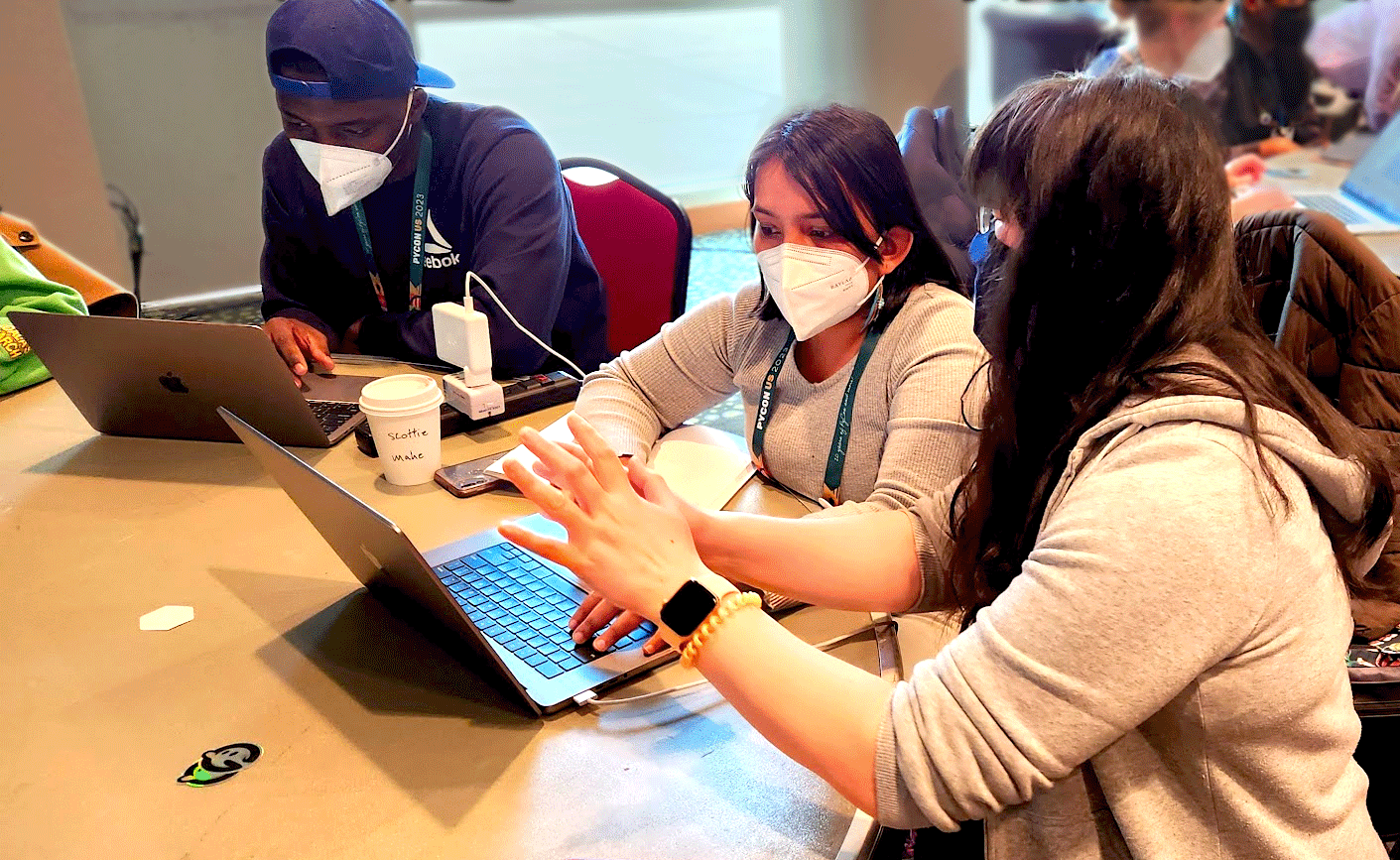pyOpenSci broadens participation in scientific open source by breaking down social and technical barriers. Join our global community.
Peer review of Python software to support open science

We Run Software Peer Review
We review Python packages and software with the goal of helping scientists build better, discoverable and usable software.
Your package can also be published in JOSS through our review process.
Submit a package today for review today.
Apply to become a reviewer.

We Build Community Partnerships
We partner with open source communities to share resources and processes such as Peer review.
Learn more about our partnerships with:
JOSS
Astropy

We Break Down Python Packaging Painpoints
Check out our beginner-friendly:
Python Package Tutorials
Python package guide
All of our resources are co-developed with the broader Python community and reviewed by beginner to expert Pythonistas to ensure the material is accessible for all.
Broadening participation in scientific open source
You don't need to be an expert to get involved
Are you new to software peer review but you want to get involved? We've got you! We offer support and mentorship to new reviewers completing their first review. All reviewers don't need to be python package experts. We welcome reviewers that focus on software accessibility and usability.
Are you new to peer review? We offer a mentorship program for anyone interested in participating in peer review but who might like a bit of support.
New pyOpenSci contributors
Recent blog posts & updates
CyNetDiff: A Python Library for Accelerated Implementation of Network Diffusion Models
CyNetDiff is a Python package for accelerating network diffusion simulations, recently accepted into the pyOpenSci ecosystem.
Navigating LLMs in Open Source: pyOpenSci’s New Peer Review Policy
Generative AI products are reducing the effort and skill necessary to generate large amounts of code. In some cases, this strains volunteer peer review programs like ours. Learn about pyOpenSci's approach to developing a Generative AI policy for our software peer review program.
Why We Choose What We Choose
In selecting one workflow to package a Python project, pyOpenSci chooses between a lot of code tools. These choices often come after months of exploration and debate. Find out what motivates us to make the decisions that we do.
Recently Accepted Python Packages
BlockingPy
Blocking records for record linkage and deduplication with Approximate Nearest Neighbor algorithms.;
ChemInformant
A robust, high-throughput Python client for retrieving chemical information from the PubChem API; it returns analysis-ready Pandas/SQL outputs, handles caching, rate-limiting and retries, and includes convenient CLI tools.
FElupe
Finite element analysis for continuum mechanics of solid bodies.
